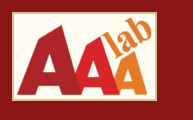Research About Teachable Agents
Teachable Agents: Planetary Rescue builds on years of research demonstrating that Teachable Agent technologies help students develop causal reasoning skills. Causal reasoning (reasoning about relations between causes and effects) is an important form of scientific reasoning that enables students to explain and make predictions about the world around them.
Teachable Agents build on the wisdom that people “really” learn when they have to teach. Students learn through the process of teaching a computer agent. Students teach their agent by creating a concept map that serves as the agent’s “brain.” An artificial intelligence engine enables the agent to interactively answer questions posed to it by traversing the links & nodes in its map. As the agent reasons, it also animates the path it is following, thereby providing feedback, as well as a visible model of thinking for the students. Students can then use the feedback to revise their agent's knowledge (and consequently, their own).
The teaching metaphor enlists fruitful social attitudes during the interaction, including a sense of responsibility for one's agent that appears to motivate students to work harder to organize their understanding. TA has been found to improve children's scientific reasoning in both causal and taxonomic (hierarchical) domains.
Select Publications on Learning Benefits of Teachable Agents
- Chase, C., Chin, D.B., Oppezzo, M, & Schwartz, D.L. (2009). Teachable agents and the protege effect: Increasing the effort towards learning. Journal of Science Education and Technology, 18(4), 334-352. doi: 10.1007/s10956-009-9180-4
- Chin, D.B., Dohmen, I.M., Cheng, B.H., Oppezzo, M.A., Chase, C.C., & Schwartz, D.L. (2010). Preparing students for future learning with Teachable Agents. Educational Technology Research and Development, 58(6): 649-669. doi: 10.1007/s11423-010-9154-5
- Blair, K., Schwartz, D. L., Biswas, G., & Leelawong, K. (2007). Pedagogical agents for learning by teaching: Teachable Agents. Educational Technology, 47(1), 56-61.
- Chin, D.B., Dohmen, I.M., & Schwartz, D.L. (2013). Teachable Agents make scientific thinking visible and improve learning for younger children. IEEE Transaction on Learning Technologies.
- Biswas, Schwartz, Leelawong, Vye, & TAG-V. (2005). Learning by teaching: A new agent paradigm for educational software. Applied Artificial Intelligence, 19, 363-392.
- Okita, S. A., & Schwartz, D. L. (2013). Learning by teaching human pupils and teachable agents: The importance of recursive feedback. Journal of the Learning Sciences, 22(3), 375-412.

For more, see: http://aaalab.stanford.edu/research/social-foundations-of-learning/teachable-agents/index.html

